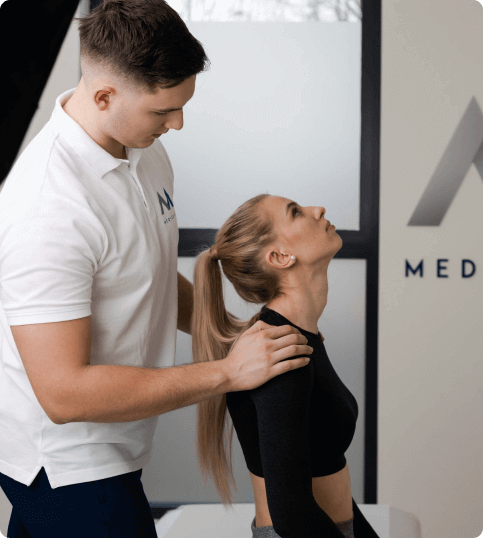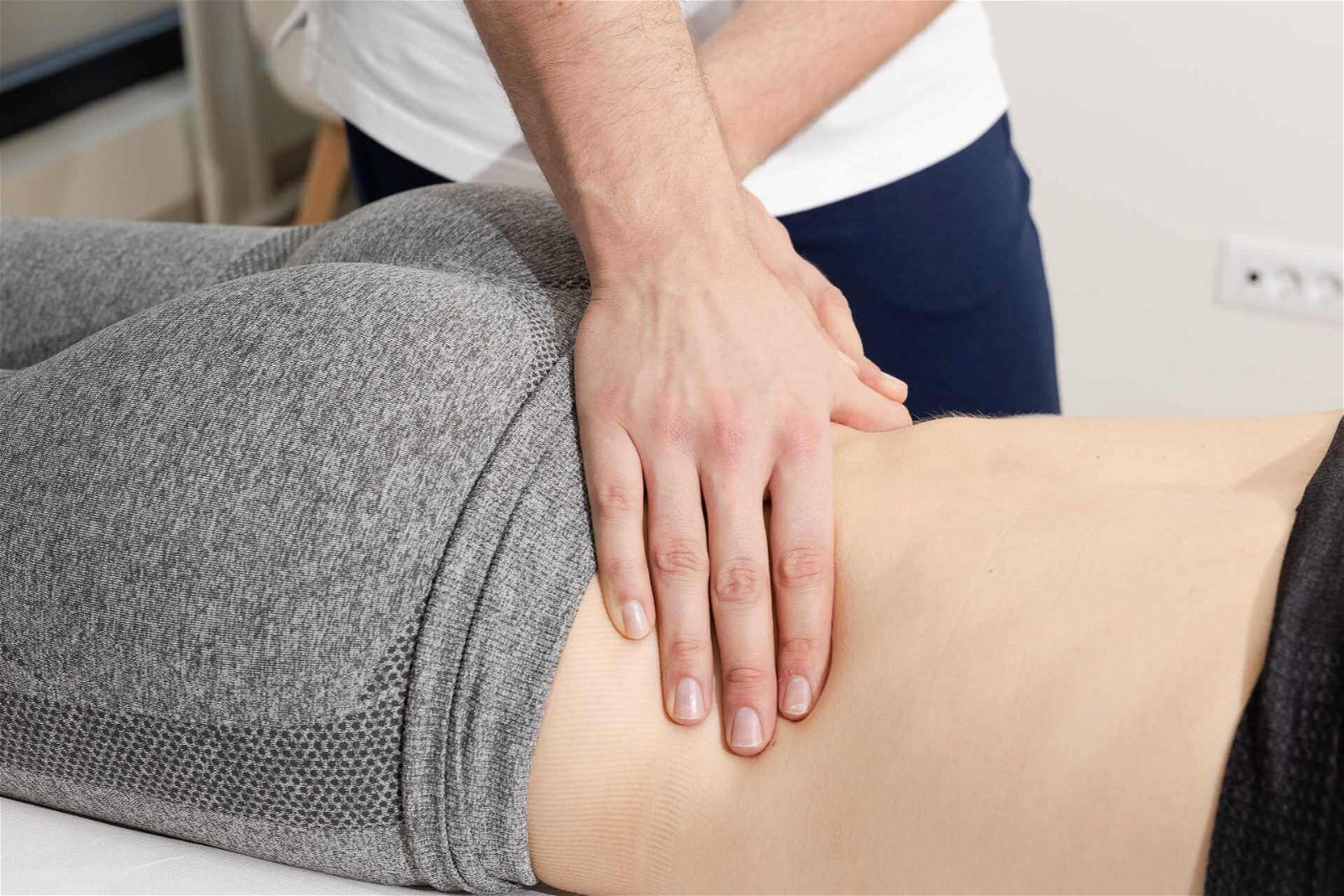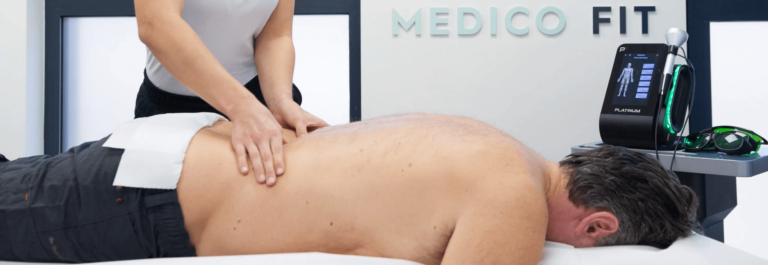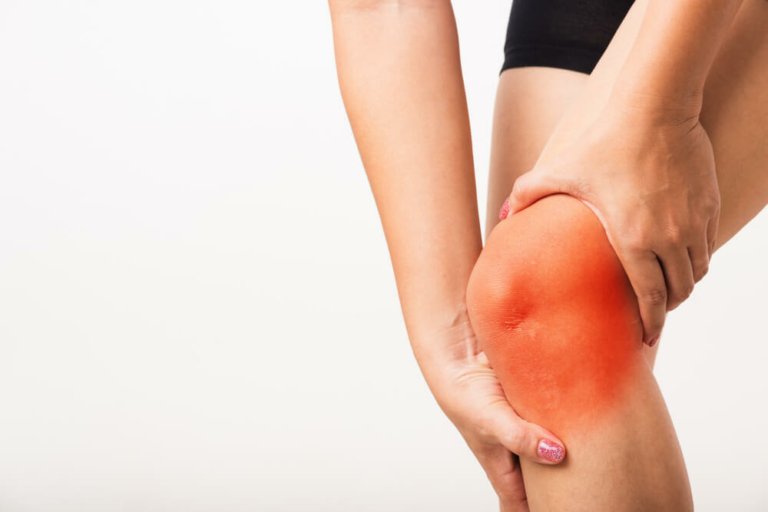More about trigger point therapy
Trigger points or muscle knots are concentrated areas of increased pain in soft tissue that are highly sensitive to palpation or touch.
Muscle groups are made up of many muscle fibres, several fibres are connected into a bundle, surrounded by connective muscle sheaths. Myofascial pain syndrome (MPS) is a chronic pain disorder characterised by numerous trigger points in multiple muscle groups and multiple muscle fibres simultaneously. Trigger points or muscle knots can be one of the primary causes of your back and neck pain; often the pain is severe and radiates to the head.
Trigger point therapy is a special manual therapy technique that relaxes trigger point areas or muscle knots with the mechanism of point rubbing, pressing, and sliding over the trigger point area.
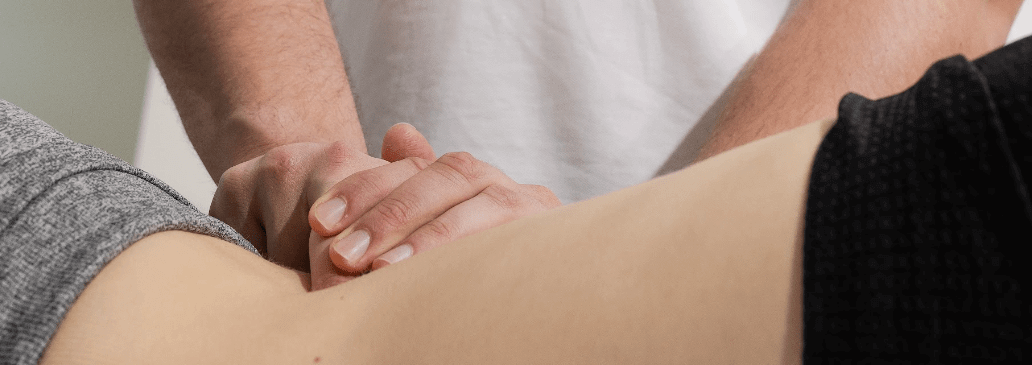
Why do trigger points or muscle knots occur?
Possible causes of trigger points or muscle knots are prolonged poor posture, sudden and rapid movement, excessive muscle stretching, or incorrect muscle loading.
These cause sudden reflex responses in the muscle, which change the physiological state of individual muscle fibres. On an anatomical level, a trigger point looks like a fibre or band that has in a certain area greatly shortened sarcomeres, which are the sequential building blocks of muscle fibres, with concurrent thickening.
A characteristic of trigger points is that the remaining part of the muscle fibre becomes overstretched and elongated. So, it is a broken structure of sarcomeres, which become “stuck together” at the trigger point.
Trigger points often do not relax on their own even after periods of rest, and can remain present as a permanently shortened muscle fibres. It is also characteristic for trigger points that local muscle fibre dysfunction can spread to surrounding tissues, and we often begin to compensate for the pain and place additional load on surrounding muscle groups.
In our MEDICOFIT clinic, trigger point therapy is performed by experienced physiotherapists after a diagnostic physical examination, where they perform clinical joint tests and muscle function tests, both of which are crucial for proper comprehensive treatment of an injury, which also includes trigger point therapies.


